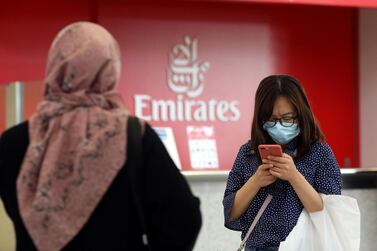Qatar Airways chief executive Akbar Al Baker has again found himself in hot water for appearing to suggest travel restrictions to combat the spread of coronavirus were scaremongering.
Mr Al Baker, who previously sparked outrage for saying that women couldn’t run airlines as it is “a challenging position,” seemingly questioned the science around the novel coronavirus.
Officially called Covid-19, the virus has infected more than 130,000 people around the world and killed 5,000 in what the World Health Organisation on Friday described as a “tragic milestone”.
"During the incubation period, OK, they say that this virus still can be transmitted. There is no scientific evidence for that. So it is just, you know, a fear factor. You know, you don't block aviation, you know, just because there is something in the air but it's really not a scientific fact. I don't know about it." Mr Al Baker said in comments broadcast by Bloomberg from their interview on February 5.
He also claimed that there is no scientific evidence that people were infectious during the incubation period of coronavirus.
The WHO and other global experts do admit there is a lot still to be understood about the new virus and how it spreads, with advice changing rapidly as research understands more.
The US Centre for Disease Control and MIT medical school both point out that while the science is not definitive on transmitting before symptoms, evidence suggests that it is possible or has happened.
A small study of cases in Germany indicated this weekend that people might be most contagious during the first week of the disease, often before they have physical symptoms.
One person in the study tested positive but showed no symptoms, while others reported mild coughs. Only two developed a fever.
Encouragingly, the study also suggested that once the body's antibody response kicks in the numbers of infectious virus cells plummet, so that "after about 10 days or so, you're not likely to be infecting other people," Ali Khan, dean of the College of Public Health at the University of Nebraska Medical Center in Omaha, told Science News.
The sample was small and studies with larger test groups are needed to build a definitive picture. But health officials in many countries, such as China, where the virus started, are working under the assumption that aggressive early testing and isolation is the best tool to combat the pandemic.
Mr Al Baker also appeared to lament those bringing in rules that stop staff who have travelled to areas with large outbreaks from flying elsewhere for two weeks to stop the spread.
“They don’t realise the operational impact this will would create on an airline.”
Qatar last Wednesday announced 238 new cases of coronavirus, bringing the total in the country to 262.







